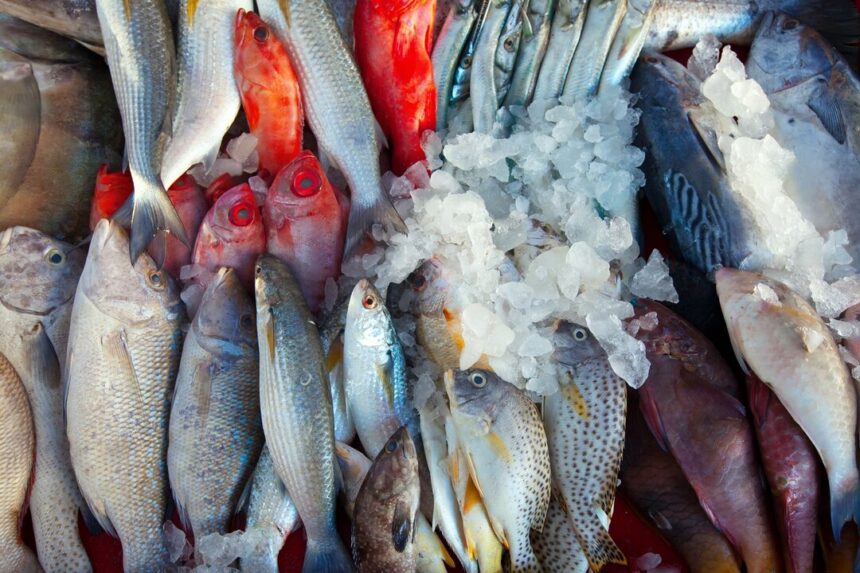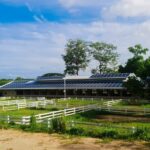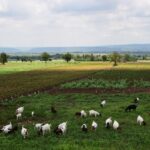South Africa’s extensive coastline presents a wealth of opportunities for aquaculture development, offering favorable conditions for the sustainable cultivation of various aquatic species. As global demand for seafood continues to rise, aquaculture presents a viable solution to meet this demand while reducing pressure on wild fish stocks and supporting economic growth in coastal communities. In this article, we delve into the aquaculture opportunities in South Africa’s coastal regions and explore the potential for sustainable development and prosperity.
1. Rich Marine Resources:
South Africa’s coastal waters are teeming with diverse marine species, including fish, shellfish, and seaweed, providing ample opportunities for aquaculture ventures. The country’s marine ecosystems offer favorable conditions for the cultivation of species such as abalone, oysters, mussels, and various finfish species.
2. Favorable Climate Conditions:
The temperate climate along South Africa’s coastline, characterized by moderate temperatures and ample sunlight, creates ideal conditions for aquaculture operations. These conditions support year-round production and reduce the need for costly temperature control measures, enhancing the economic viability of aquaculture ventures.
3. Abundant Water Resources:
South Africa’s coastal regions are endowed with abundant water resources, including estuaries, bays, and open ocean areas, providing ample space for aquaculture activities. The availability of clean, nutrient-rich seawater facilitates the growth and development of aquatic species, contributing to higher yields and product quality.
4. Diverse Aquatic Species:
The country’s coastal waters support a wide range of aquatic species suitable for aquaculture, including both marine and freshwater species. Aquaculture ventures in South Africa have the opportunity to cultivate high-value species such as abalone, shrimp, tilapia, trout, and seaweed, catering to domestic and international markets.
5. Economic Growth and Job Creation:
Aquaculture development in South Africa’s coastal regions has the potential to stimulate economic growth and create employment opportunities, particularly in rural and coastal communities. By harnessing the country’s marine resources sustainably, aquaculture ventures can generate income, enhance food security, and alleviate poverty in coastal areas.
6. Technology and Innovation:
Advancements in aquaculture technology and innovation offer new opportunities for sustainable development and increased productivity in South Africa’s coastal regions. Aquaculture ventures can leverage technologies such as recirculating aquaculture systems (RAS), offshore aquaculture platforms, and automated monitoring systems to optimize production efficiency and minimize environmental impact.
7. Sustainable Practices:
Environmental sustainability is a key consideration in aquaculture development, and South Africa’s coastal regions offer ample opportunities to implement sustainable practices. By adopting responsible aquaculture methods, such as integrated multitrophic aquaculture (IMTA), organic farming techniques, and ecosystem-based management approaches, aquaculture ventures can minimize environmental impact and promote long-term sustainability.
8. Regulatory Framework:
South Africa has a well-established regulatory framework governing aquaculture activities, ensuring compliance with environmental, health, and safety standards. Aquaculture ventures must obtain permits and licenses from relevant authorities, undergo environmental impact assessments, and adhere to best management practices to operate legally and responsibly.
9. Research and Development:
Investment in research and development is critical for advancing aquaculture technology, improving production practices, and addressing challenges facing the industry. South Africa’s academic institutions, research organizations, and government agencies play a vital role in conducting research, providing technical assistance, and fostering innovation in aquaculture.
10. Market Opportunities:
Aquaculture products from South Africa’s coastal regions have access to both domestic and international markets, catering to diverse consumer preferences and dietary preferences. With growing demand for sustainably sourced seafood, aquaculture ventures can capitalize on premium markets and command higher prices for their products.
In conclusion, South Africa’s coastal regions offer abundant opportunities for aquaculture development, driven by favorable climate conditions, rich marine resources, and growing market demand for seafood. By embracing sustainable practices, leveraging technology and innovation, and fostering collaboration among stakeholders, aquaculture ventures can unlock the full potential of South Africa’s coastal waters, contributing to economic growth, food security, and environmental sustainability.
Join 'Farmers Mag' WhatsApp Channel
Get the latest Farming news and tips delivered straight to your WhatsApp
CLICK HERE TO JOIN






